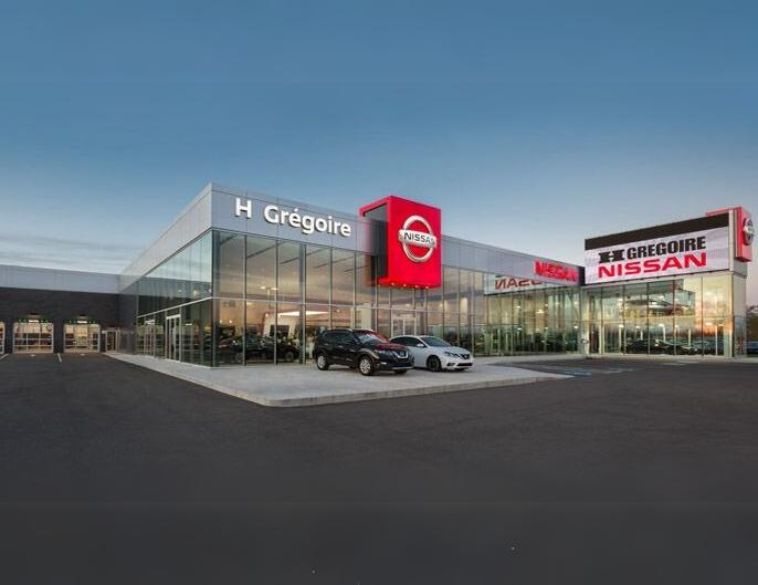Why being able to relate is a crucial part of the sales process.
If we think about moments in our lives when we struck up a memorable conversation with somebody and then several months later, we reconnected with that person and they happened to work at a dealership—would we consider buying a car from them when the time came to replace our current set of wheels?
It’s a question that’s pondered regularly at Henley Honda and Subaru of Niagara in St. Catharines. Dealer Principal and owner Alex Digenis says the ability for customers and sales staff to relate is a crucial part of the sales process.
Surprising outcome
He recalls a moment in time, when fresh out of university he was on a plane. The passenger sitting next to him was an older gentleman and at first glance, Digenis felt they had little in common. Yet a conversation was struck and the young Digenis asked him what he did. It turns out this gent had gone to both medical and law school and ended up in a career where he was responsible for litigation against medical malpractice. Ultimately, the conversation led to Digenis being offered a scholarship to a prominent university in Scotland, something he would never have expected when he first got on the plane.
The same is true for dealer sales staff and their customers. Being able to listen, to understand and identify what motivates and interests them is key to a successful and repeatable sales transaction and referrals. Yet often, that process can break down when the customer’s needs aren’t properly identified at the outset and the salesperson isn’t able to either understand or articulate a particular customer’s requirements.
The COVID-19 pandemic has also added further complications. At TRADER Corporation, Matt Lawson, Vice President, Dealer Software & OEM says that one thing the pandemic has done is shift the sales process to encompass more online activities at a greater rate than in the past.
Online convenience
Today, expectations for car shoppers are that they want to be able to build and price a vehicle online, they want to be able to get an appraisal on their trade; they want to know how much the payments are actually going to be and they want to know what F&I products and accessories are available and how much they will add to the overall cost.
Lawson says that the key thing for dealers is to understand what customers are looking for in terms of convenience and access for the online experience and be able to smoothly integrate the physical aspects of the process, such as the test drive and delivery.

“When a customer is building a deal online and they arrive at a dealership, whether it’s for a test drive, to sign the bill of sale or to schedule their delivery, they don’t want to start the process again,” says Lawson, “they want to pick up right where they left off.”
He says that’s a prime reason why TRADER offers tools for dealers to not only utilize inside their operation but employ effectively and efficiently to create a consistent purchase experience.
In fact, Lawson says that TRADER experienced record growth during 2020 and a lot of that is down to having the right tools and strategies at the right time. “In August of 2020, we saw over 25 million visits to our marketplace, which is a record 32% growth year-on-year.”
Lawson says this sends a clear signal that consumers are coming to the autoTRADER.ca marketplace for research and purchase decisions and that “now we have been able to empower them with these tools, it represents a tremendous opportunity for both dealers and automakers to leverage them as a resource.”
Sharing ideas
Back at Henley Honda and Subaru of Niagara, Alex Digenis says a key part of a successful sales strategy is the ability and willingness to share ideas. Both his sales and service teams have regular huddles where they get together and share thoughts. Digenis refers to the mastermind concept whereby from two different ideas, a third idea is created.

“It is super important to get that mastermind principle going,” says Digenis, “and we have been doing it daily. We have made some good pivots that have addressed customers’ concerns and the bi-product of that is the team feels like they are being heard.” He also says that by doing so, changes can be instigated quickly to address customer concerns and pain points—sometimes even within the same day of the staff meeting.
Digenis notes that in today’s environment, the ability for sales staff to connect with customers and find that common ground across multiple communication platforms is critical. Although the dealership has had great success with its own YouTube videos and the ability to address specific customer concerns and share them via social media—online and digital solutions are only part of the equation.
He notes that for both the Honda and Subaru dealerships, social media platforms like YouTube and Facebook serve as great entry points to piquing car shopper’s interest, but the in-house call centre and chat feature where they interact directly with the dealership staff is a key factor in establishing rapport and creating a smooth and satisfying sales transaction.
“We did look at outsourcing our call centre and chat functions, but we decided not to do that,” says Digenis. “We feel that customers appreciate that direct, personal contact with our sales staff and the ability for them to interact with our sales managers or store general managers–people in positions of authority who are able to directly answer their questions.”
Ultimately, he says, being relatable comes down to listening to the customer’s needs and desires and finding out how purchasing a particular vehicle is going to benefit their lifestyle. And doing so requires one-on-one interaction and not relying purely on digital tools or sales scripts.
“If you don’t tie those features and benefits [of the vehicle] into the customer’s lifestyle then you are missing a massive opportunity to connect with them.”



